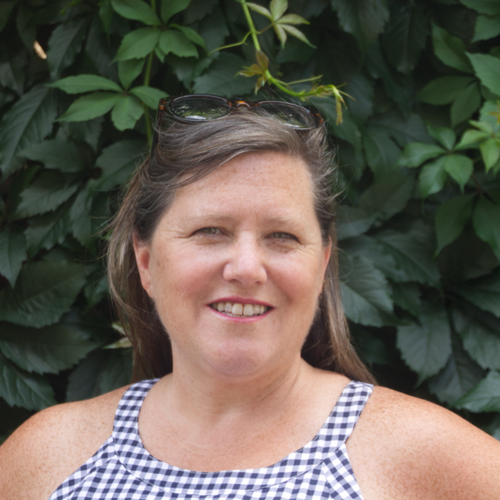Editor’s note: This is an updated version of an article that previously appeared on the Sustaining Pastoral Excellence website.
Of all the many ways to practice pastoral ministry, none is more exciting -- more adventuresome, risky and even adrenaline-filled -- than starting a new church, says the Rev. Rick Morse.
It's a hair-raising experience, a whole lot like riding a roller coaster, he said: “The highs are highs, the lows are lows, you do a lot of screaming, and at the end, you're glad if you didn't throw up.”
Since 2001, with the help of Morse and others, the Christian Church (Disciples of Christ) has placed more than 618 pastors on the roller coaster of new church ministry. While many have screamed and a few have turned green over the years, almost every pastor is still on the ride. They are heading up promising new church plants and moving the denomination closer to its goal of starting 1,000 new churches by the year 2020.
It's a far cry from just a decade or so ago, when the denomination was starting only five to 10 new churches a year, half of which soon withered and died, said Morse, director of the Disciples' New Church Ministry Program.
What made the difference?
Morse says the key was a Sustaining Pastoral Excellence grant that the program is using to provide coaching and other support for new church pastors. Under the grant, the New Ministry Program provides the new church pastors with coaching from trained and experienced church planters, scholarships for continuing education, peer groups and other support.
The results so far have been dramatic, with success rates much higher than the 50 percent success rate of a decade ago. Today, 79 percent of all the denomination's new churches established since 2001 and 92 percent of the church starts that have had coaches under the SPE grant are considered sustainable -- that is, they are on track to be viable and successful congregations.
“Our SPE program, particularly the coaching component, has had a tremendous impact on these pastors and their churches,” Morse said.
While all pastors could benefit from coaching and other support, the need particularly iscritical for those who are planting new churches, said Morse, who was himself a church planter for 17 years. Inherently unpredictable and unstable, the work of starting a new church is difficult and demanding. It's a field where progress is measured in very small increments, in inches and fractions of inches.
“If you're pastor of an existing church and seven people show up for Bible study, you consider it a failure,” Morse said. “But with a new congregation, if seven people show up, the pastor gets real excited. You have to work so much harder just to get minimal returns.”
As a result, new church pastors tend to throw themselves into their work. Because it is ministry lived on the edge, the church and its survival often become all consuming, to the detriment of every other aspect of the pastor's life.
“This work is really seductive,” Morse said. “Time and again, I've seen new church pastors who turn their backs on their families and themselves because they have a chance to make one more contact or phone one more person who might come to their church. When you get an opportunity to meet someone who may be interested, you place a real high priority on it.”
Under the coaching program, experienced church planters are paired with the new church pastors. While some pastors initially struggle with the notion of having a “coach” – a word that for many conjures up the worst memories of high school gym class -- they soon find that their coach is not an authority figure or a supervisor. Instead, the coach is a knowledgeable and experienced guide, a companion who accompanies the pastor on the difficult journey of new church ministry.
The best coaches don't give directions or opinions but ask questions, helping the pastors to think through the various issues of new church ministry, Morse said. Sermon preparation, budget matters, personal crises -- all are topics that coaches and pastors explore together.
In 2005, New Church Ministry changed the term “coach” to the biblical image of Barnabas. “We felt that image communicated the task more crossculturally with our very diverse groups of planters,” said Charlie Wallace, the former director of the program.
The Barnabas program now is self-replicating. Deborah Thompson, who was a planter in 2001, now is coaching others. Thompson writes: “It has been my pleasure to serve as a Barnabas to four very gifted and talented women new-church pastors. I have the opportunity to work with them at their various stages of development. I have found that my experiences -- both positive and negative -- as a new church pastor have been invaluable in helping me provide counsel, advice and to ask the right questions in helping them seek out their own solutions.”
“In many ways, the coach's role is to bring contact from the outside world, helping the pastors to refocus on their goals and reminding them of the need for balance in their lives and ministry, said the Rev. Ketty Santos, minister of coaching for the New Church Ministry Program.
“The Barnabas helps the pastors learn to back off and take care of themselves and their families,” said Santos who successfully planted a congregation in the Atlanta area.
“There is a ton of rejection that goes with starting a new church,” Morse said.
“Sometimes it can feel pretty personal, especially if it's a young pastor who's full of idealism and then somebody rains on their parade. It's important to have somebody like their coach to debrief with.”
The coach and planter meet at the planters’ initial training and begin their relationship by working together to develop a plan for the new church and its ministry. Over the next two years, the coach stays in touch with the pastors, telephoning them every two weeks or so to ask how they are doing personally, professionally and spiritually. At least once a year, the coach visits the pastor at the new church.
“Each time they talk,” Santos said, “the coach will ask ‘How is your spiritual life? How is your personal life? When was the last time you took your spouse on a date? Are you getting to your son's baseball games?'”
Basically the Barnabases help keep the new-church pastors focused on their original call and hold them accountable to their families, to their new congregations and to God, Santos said.
Strong family relationships are particularly important for church planters, perhaps even more so than for pastors of established congregations. The loneliness that characterizes much of pastoral ministry today is even a greater reality for many new church pastors, Santos said.
“When you start a church, you start off with you and your family and that's it,” he said.
Although the formal coaching relationship ends after two years, most pastors and coaches continue their relationships in some capacity. Many of the best planters, in turn, become “Barnabases” to other new pastors.
In addition to the coaching program, the SPE grant also underwrites an annual three-day gathering for all the church planters, which gives the pastors a chance to vent and share ideas, successful strategies and other continuing education opportunities.
Despite the many challenges, starting a new church can be one of the most rewarding forms of ministry, Morse said. To pull together a congregation and help them go through those first few years, to watch their relationships transform from strangers to friends, is very gratifying, he said.
Starting new churches isn't for everyone. But it is something that gets in your blood.
“There are people who are pioneers and there are people who are settlers,” said Morse. “Once you work with the pioneers, you never go back to being a settler. It's a different way of doing ministry and living life on the edge.”
But even pioneers need someone to point them in the right direction.









